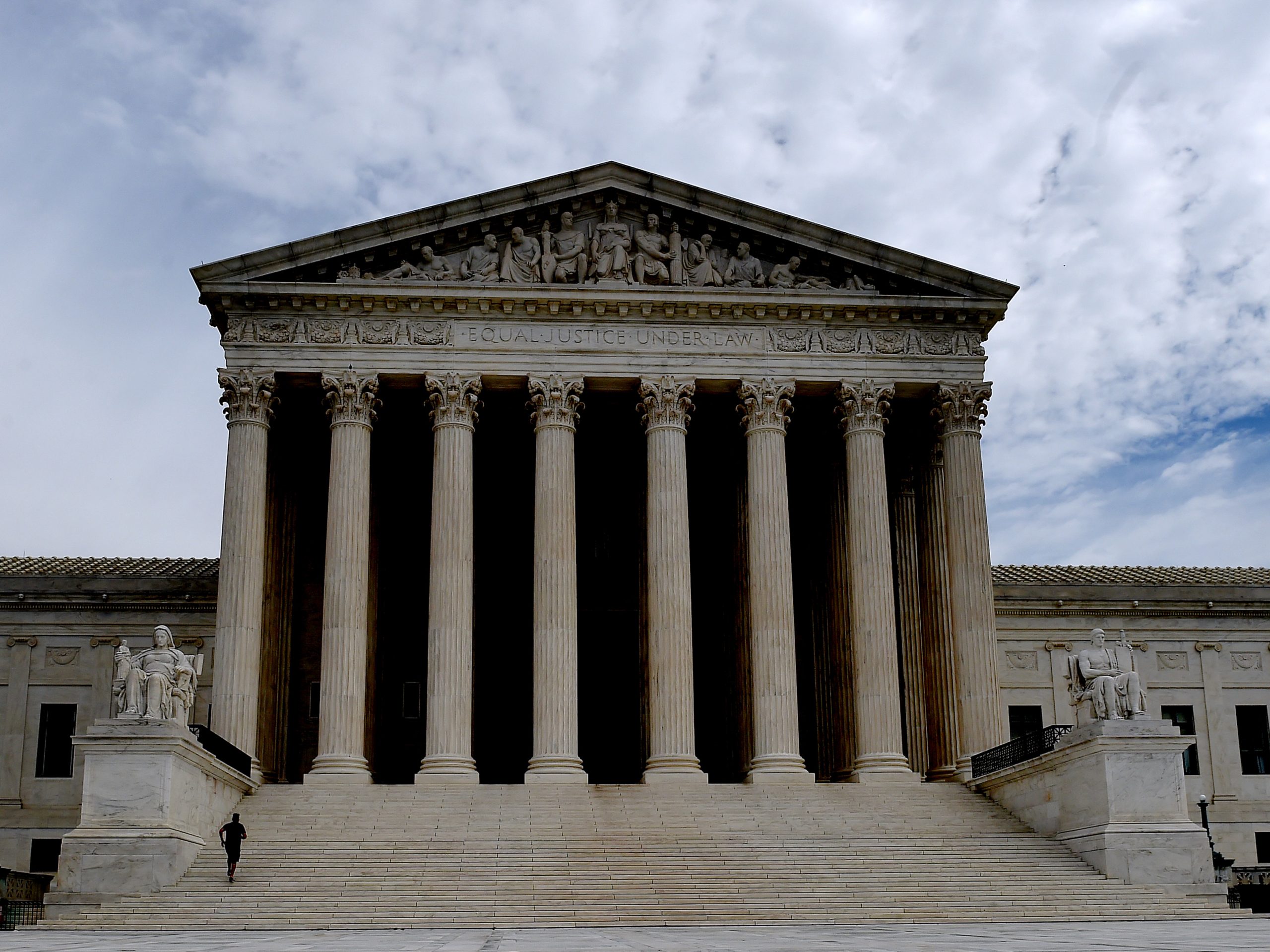News

Listen Live: Supreme Court Arguments Begin Monday
By: Nina Totenberg | NPR
Posted on:
The Supreme Court is hearing oral arguments remotely for the next two weeks, and for the first time in history, the audio will be available, live, to the public. The arguments include high-profile cases about birth control access, religious freedom, the Electoral College and President Trump’s financial records.
They are scheduled to take place Monday through Wednesday on the weeks of May 4 and May 11, beginning at 10 a.m. ET each day. You can listen to all of the cases here:
Can’t see this visual? Click here.
For each case, both sides will have the same amount of time. Each side will have two minutes of uninterrupted argument at the beginning. After that, each justice has been allotted two minutes for questioning, with more questions permitted if there is time left at the end of the first round. Each side has a total of 30 minutes.
The justices will speak in order of seniority: After Chief Justice John Roberts, it will be Justices Clarence Thomas, Ruth Bader Ginsburg, Stephen Breyer, Samuel Alito, Sonia Sotomayor, Elena Kagan, Neil Gorsuch and Brett Kavanaugh.
Here’s a rundown of the cases:
Monday, May 4: Booking.com trademark
10 a.m. ET: U.S. Patent and Trademark Office v. Booking.com B.V.
Generic terms cannot be trademarked, but Booking.com wants to trademark its name. This case is about whether generic terms can become protected trademarks by the addition of a generic “.com” domain.
Tuesday, May 5: Aid for HIV program
10 a.m.. ET: USAID v. Alliance for Open Society International
A new twist on an old case. In 2013, the justices said the government had violated the First Amendment by making funding for U.S. nonprofits contingent on those nonprofits trumpeting the government’s policy position on key issues. The case is back, but this time the question before the court is whether it’s unconstitutional if the government makes funding contingent for foreign-based affiliates of those same U.S. nonprofits.
Wednesday, May 6: Birth control access & Robocalls
10 a.m. ET: Little Sisters of the Poor v. Pennsylvania consolidated with Trump v. Pennsylvania
The court considers a Trump administration rule that would allow employers with religious or moral objections to birth control to limit their employees’ access to free birth control under the Affordable Care Act.
11 a.m. ET: Barr v. American Association of Political Consultants
In 1991, Congress passed a law that prohibits most robocalls. In 2015, Congress created an exception for government debt collection. Political groups, which want to use robocalls to raise money and turn out voters, are challenging the act as a violation of their First Amendment free speech rights.
Monday, May 11: Native American land & Religious freedom
10 a.m. ET: McGirt v. Oklahoma
On the surface, this case is about whether states, like Oklahoma, can prosecute members of Native American tribes for crimes committed in the historical bounds of tribal land. But it has implications for state power over thousands of miles of land in Oklahoma that has historically belonged to Creek, Cherokee, Seminole, Chickasaw and Choctaw tribes.
11 a.m. ET: Our Lady of Guadalupe School v. Morrissey-Berru consolidated with St. James School v. Biel
A freedom of religion case that tests whether lay teachers at parochial schools are protected by federal laws barring discrimination based on race, gender, age and disability; or whether, as the schools here maintain, their lay teachers are exempt from the protection of those laws. The case has potential implications for the millions of Americans employed not just by parochial schools but also by religiously affiliated hospitals, charities and universities.
Tuesday, May 12: Trump finances
10 a.m. ET: Trump v. Mazars consolidated with Trump v. Deutsche Bank AG; Trump v. Vance
These cases involve subpoenas for some of Trump’s pre-presidential financial records. Two consolidated cases — Trump v. Mazars and Trump v. Deutsche Bank — ask whether Congress has the power to subpoena the president’s personal records except during an impeachment proceeding; Trump v. Vance addresses a New York grand jury subpoena for those same records in the course of a criminal investigation.
Wednesday, May 13: Faithless electors
10 a.m. ET: Chiafalo v. Washington; Colorado Department of State v. Baca
Both cases involve so-called faithless electors — Electoral College delegates who fail to vote for the presidential candidate they were pledged to support. At issue is whether states can punish or remove such electors in order to ensure that the state’s electors accurately represent the state’s vote.
9(MDI4ODU1ODA1MDE0ODA3MTMyMDY2MTJiNQ000))

